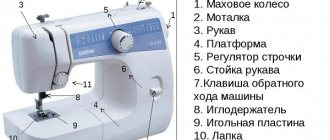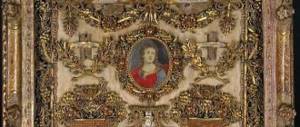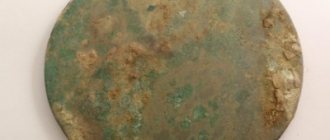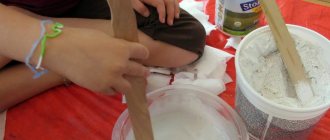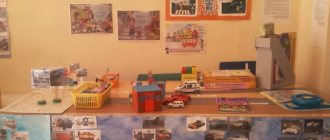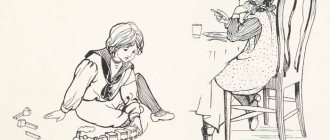History of the piano for children
One of the key events in the history of music was the invention of the piano. This event had a huge impact on the development of world culture.
The invention of the piano dates back to
the 18th
century.
Predecessors of the piano
Keyboard instruments were invented back in the Middle Ages.
The oldest of the keyboard instruments is the organ
, which became the predecessor of the piano.
However, the organ had pipes,
which the piano does not.
The first keyboard-string instrument is the clavichord.
It was invented after the Middle Ages, but the exact time of invention is unknown.
The clavichord was very similar in structure to a modern piano, but it produced sounds too quiet to be played in front of a large audience. Johann Sebastian Bach
had such an instrument at home .
The structure of the clavichord was quite simple; in addition, it was small in size. There was only one string per clavichord key, and three strings per piano key. The harpsichord
is another predecessor of the piano.
Presumably, it was invented in the 15th century
in Italy.
The strings and keys are arranged in parallel, like a grand piano, but the piano and clavichord have strings perpendicular to the keys. The sound of the harpsichord, like the clavichord, was quite quiet, so composers who used the harpsichord in concerts used many melismas to lengthen the sound of notes and make them more audible. Most often the harpsichord was used as an accompaniment. Another forerunner of the piano was the spinnet
.
In structure it is very similar to a harpsichord, only it has two keyboards of four octaves each. The spinnet was most often used not for playing, but for home decoration, as it was richly decorated. At the end of the 17th
century, keyboard players began to need such a keyboard instrument with an expressive sound.
In 1709
, an Italian named
Bartolomeo Cristofori
invented the first piano, and a little later German and French masters created similar instruments.
Development of the history of the piano
The invention of the piano was first announced in the
Rococo era.
It was the middle of
the 18th
century.
A new genre has appeared in music - the piano concerto.
Now the keyboard instrument began to be used as the key instrument for the orchestra.
The circle of keyboard musicians and keyboard music lovers began to rapidly expand. A large number of composers appeared who became famous thanks to their works for the piano, for example, Wolfgang Amadeus Mozart, Frederic Chopin, Joseph Haydn
and many others.
Ludwig van Beethoven
and other
began to develop .
Pieces for piano tuning became popular, usually performed
by four hands.
During the Romantic era, the piano was often used as an instrument for home music playing. With the growing popularity of this musical instrument, more and more virtuoso pianists began to appear who changed the history of music; now there are also many such performers. The appearance of the piano was a turning point in the world history of music. If the piano had not been invented, then there would be no great composers-pianists, piano concertos and virtuoso performers of keyboard music.
Presentation for the lesson “His Majesty the Piano”
Personally, - said the famous instrument named Piano,
— it all started with a blow. You could say it was the happiest blow of fate.
- What kind of blow are you talking about, dear Piano?
- Look!
The piano opened, flapping a huge black wing - the lid.
An amazing picture appeared before me! Wooden hammers play some kind of game with metal strings. There are a lot of them - both hammers and strings. With instant blows, like a prick, the hammers touch the strings and just as suddenly, as if in fright, they bounce back.
It seems as if they want to take the strings by surprise, appearing in the most unexpected places - sometimes alone, sometimes in groups. And the strings rumble from the frantic attacks of hammers, and cry, as if touched to the quick, and sing tenderly under gentle touches. And they laugh, and rejoice, and are indignant, and sad, and sigh. . . Why is all this wonderful, exciting game called Piano?
My name comes from two Italian words: forte and piano. In Russian I should be called Gromkotiho.
— It’s an insultingly simple name for such a wonderful instrument! Yes, you deserve the most sonorous name in the world!
- Well, they also call me Royal, which means royal.
- Your Majesty! Let me ask you about your royal ancestry
If you please. I have crossed three types of musical instruments:
genus of Strings,
genus of keyboards and
genus of Percussion.
My direct predecessor, one might say, my own father, is the noble Harpsichord. From the Harpsichord I inherited my appearance and my heart - the keyboard mechanism. True, the harpsichord’s heart beat differently than mine: more dispassionately and restrained - from the hissing of the strings with feathers.
An instrument named Cymbal is, one might say, my own mother. This is an ingenuous nature, all in plain sight. It sounds from hitting the strings with sticks. A very ancient instrument, I must say. And today it still lives in some countries and is considered popular.
— I was born in 1709 in the workshop of the Italian Bartolomeo Cristofori. “Your voice, of course, is still uncouth,” the master told me at birth, “but, compared to the Harpsichord, it has a valuable gift: it can be loud or quiet as needed. From now on you will be called Piano.”
When did you ascend the throne? Your Majesty?
The answer was:
Harpsichord
Piano
“For about a hundred years I lived in the shadow of the Harpsichord, under its wing. I gained my wits. Well, then the Harpsichord retired to the museum, and the royal title was established for me.
- Of course, the musicians doted on you, as they say, they carried you in their arms...
Royal laughed, scattering small beads of sounds:
- I would like to see such strong men. It’s not easy to move me even on wheels. I can’t complain about the lack of attention to my person. Composers began to give me their best works, and music lovers everywhere greeted me with enthusiastic applause. And then I said to myself: the position of my favorite instrument obliges me. I will improve tirelessly. And I began to closely monitor technical advances.
- Do you really understand technology?!
- Of course, I can’t do without technical knowledge. I remember that in 1812 a technical innovation appeared - people learned to draw steel wire. I immediately adapted it to the strings.
Do you know with what gigantic force the strings within me are stretched? Twenty thousand kilograms!
The wooden body of the piano was literally exhausted from such a load. Something had to be invented...
Fortunately, in the middle of the 19th century, metallurgists learned to melt high-quality cast iron. The piano body was reinforced with a cast iron frame.
- Tell me, magnificent Royal, do you have at least one flaw?!
— Very heavy and inconvenient in size. I feel great in concert halls. How can I walk around apartments with my size? This is where I am successfully replaced by my smaller offspring - PIANO
.
If you translate his name into Russian, it’s something like quiet
it will work out. It can do almost everything that a piano can do. But his complexion is completely domestic, he will always find a place for himself in the room.
https://www.muz-urok.ru/fortepiano.htm

